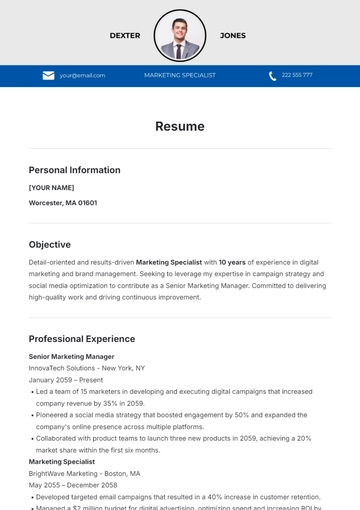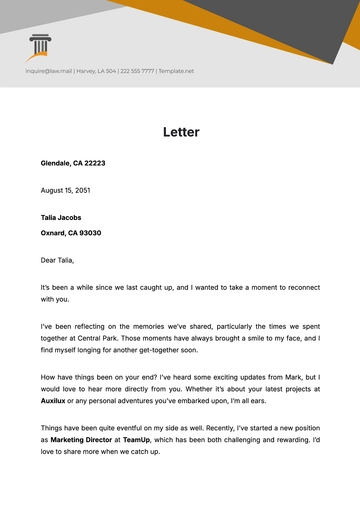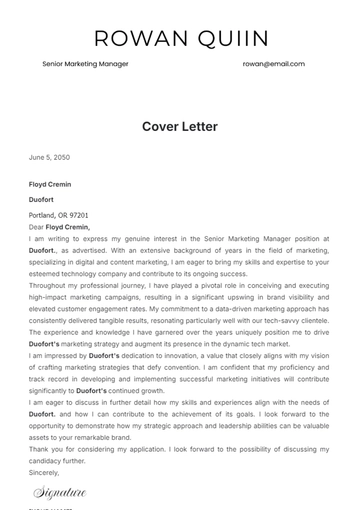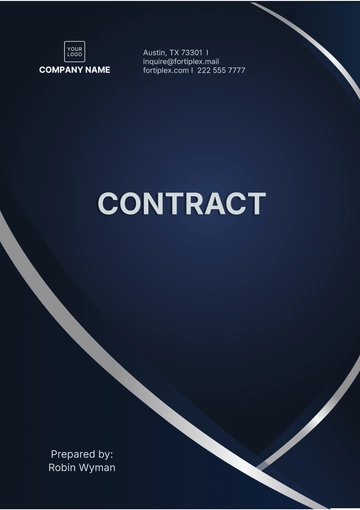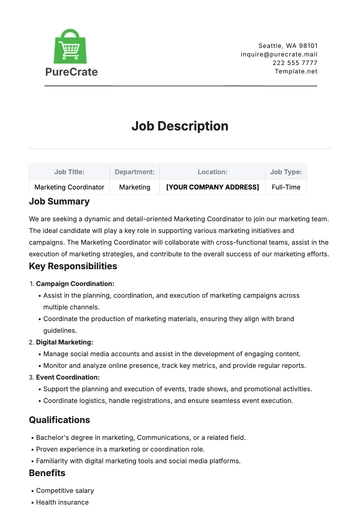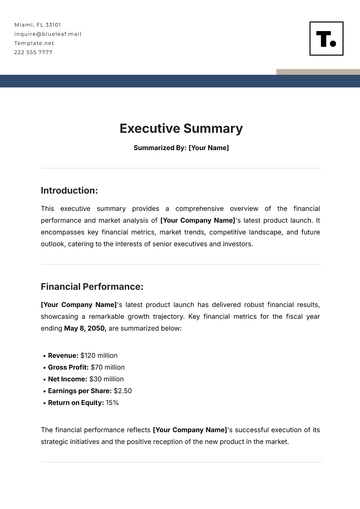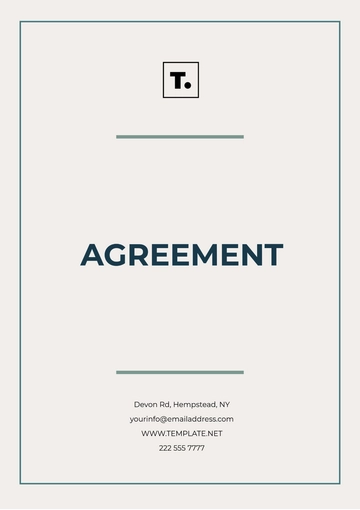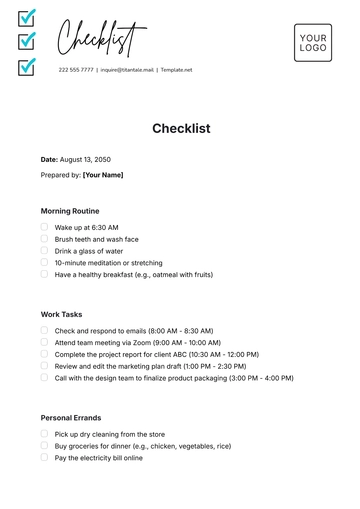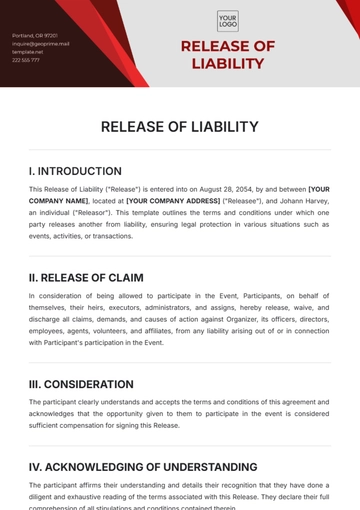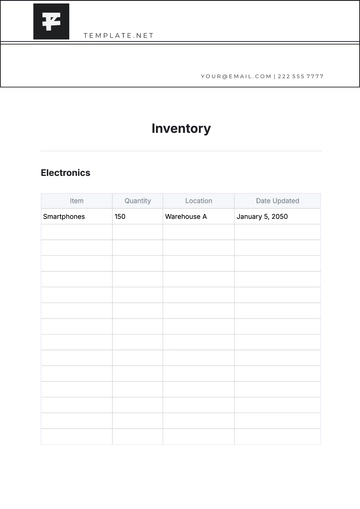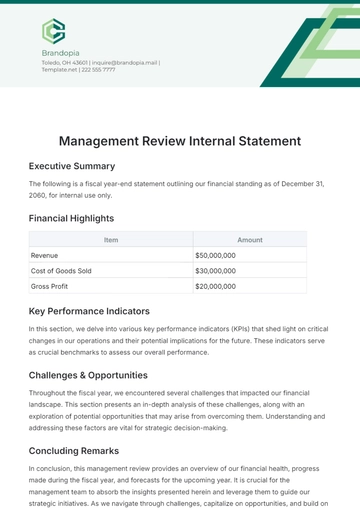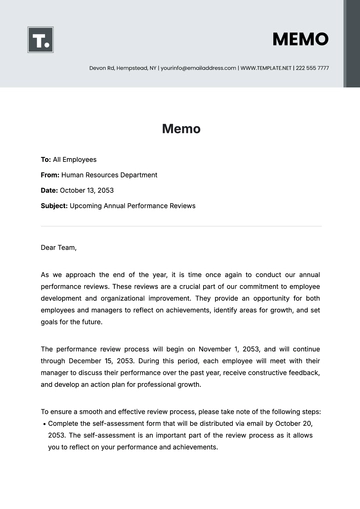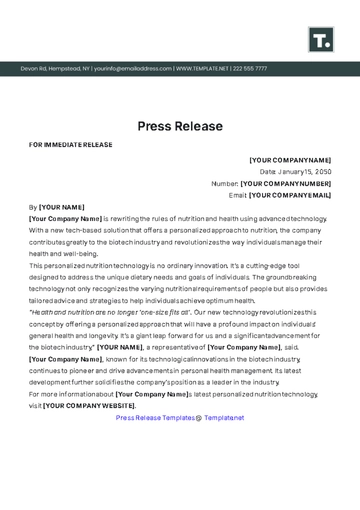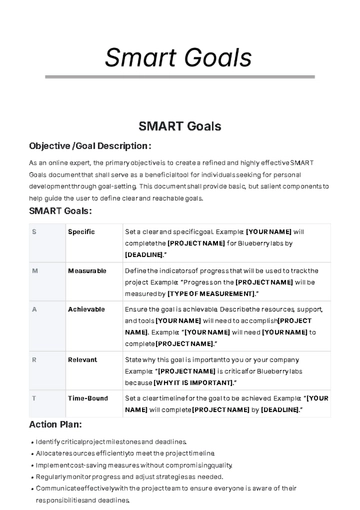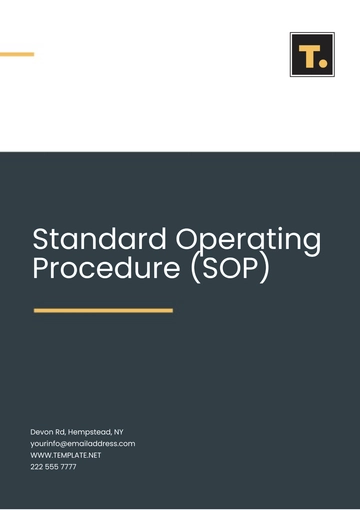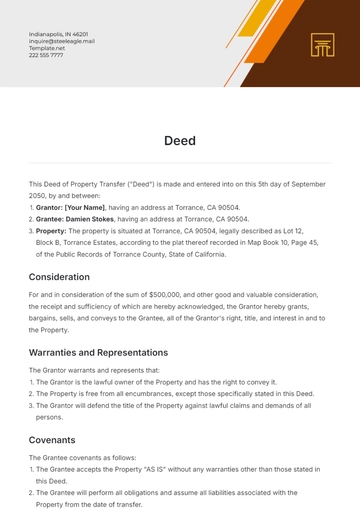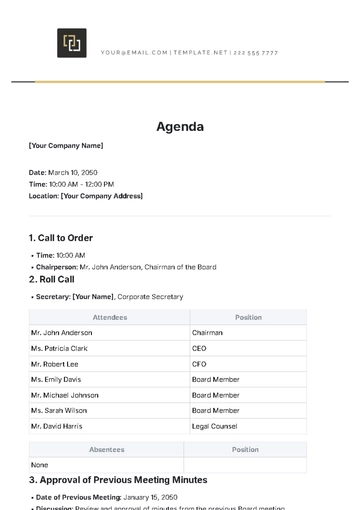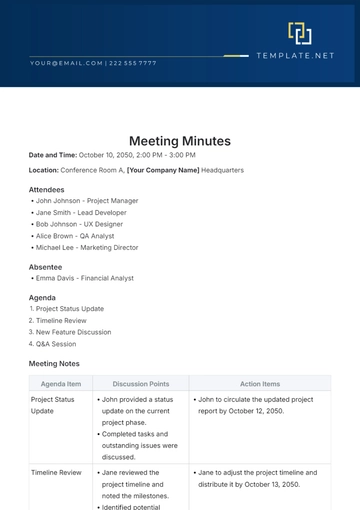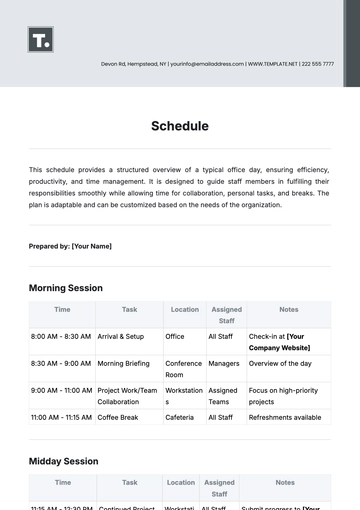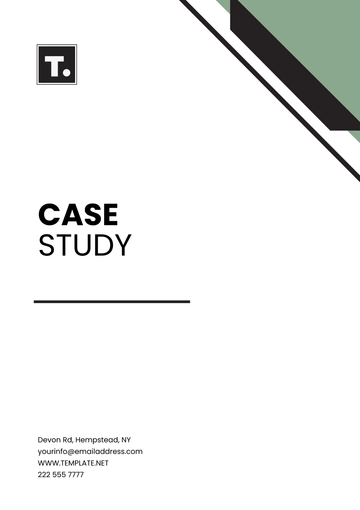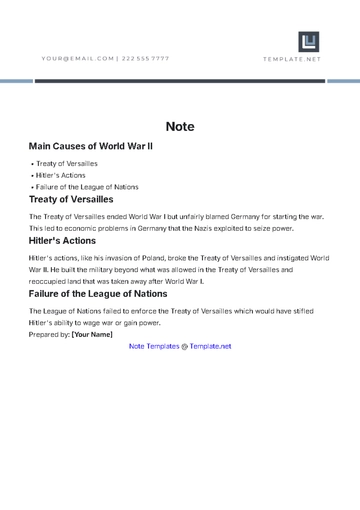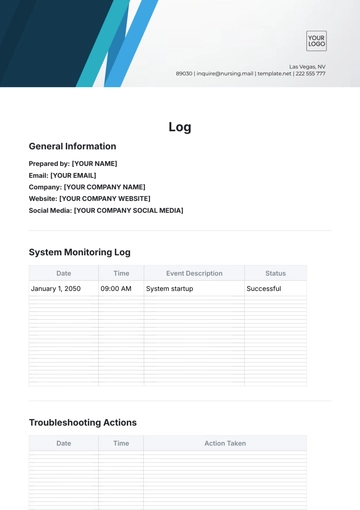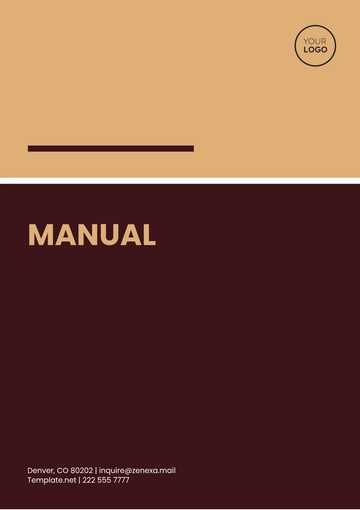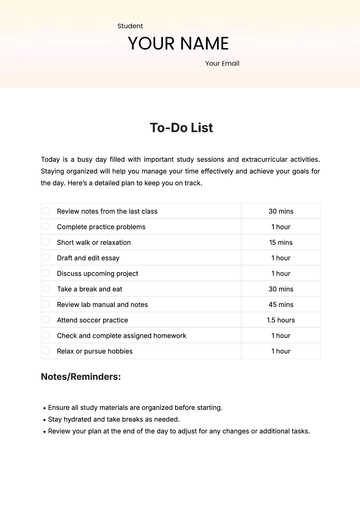Free Church Property Bylaw Design??Template
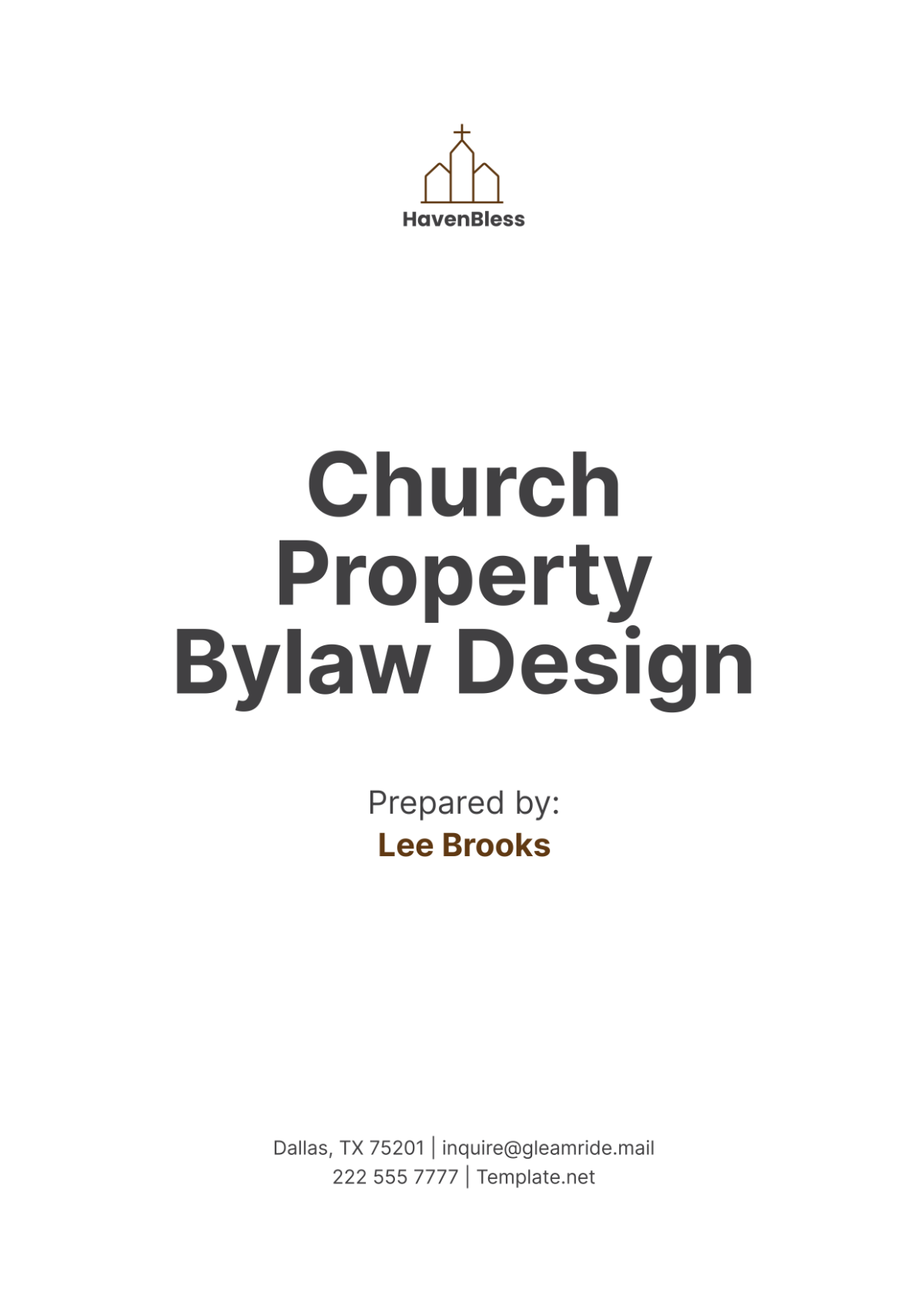
I. Introduction
A. Purpose of the Bylaws
The purpose of these bylaws is to establish the guidelines and procedures for the management and use of [Your Company Name] Church property. These bylaws aim to ensure that all church property is used in a manner consistent with the mission and values of [Your Company Name] Church. Furthermore, these bylaws seek to protect the interests of the church community by providing clear and transparent policies for property use and management.
B. Scope of the Bylaws
These bylaws apply to all properties owned, leased, or managed by [Your Company Name] Church. This includes, but is not limited to, church buildings, grounds, vehicles, and any other real or personal property. The bylaws are intended to guide the decisions and actions of church leadership, staff, volunteers, and members regarding the use and maintenance of church property.
C. Definitions
Church Property: All real and personal property owned, leased, or managed by [Your Company Name] Church, including buildings, land, vehicles, equipment, and furnishings.
Church Leadership: The governing body of [Your Company Name] Church, including the Board of Trustees, Pastoral Team, and any other designated leaders.
Members: Individuals who have officially joined [Your Company Name] Church and are in good standing.
Non-Members: Individuals who are not officially part of [Your Company Name] Church but may use church property under certain conditions.
II. Property Ownership and Management
A. Ownership
Title and Deeds: All titles and deeds for church property shall be held in the name of [Your Company Name] Church. The Board of Trustees shall be responsible for ensuring that all legal documents are properly maintained and recorded.
Acquisition of Property: Any acquisition of property must be approved by the Board of Trustees. The process shall include a thorough review of the property’s suitability, cost, and alignment with the church’s mission and strategic goals.
B. Management
Property Manager: The church shall appoint a Property Manager responsible for the day-to-day management of all church property. This includes overseeing maintenance, repairs, and security.
Maintenance Schedule: A regular maintenance schedule shall be established to ensure that all church property is kept in good condition. This schedule shall include routine inspections, repairs, and necessary upgrades.
Security Measures: Appropriate security measures shall be implemented to protect church property. This includes installing security systems, conducting regular security audits, and ensuring that all property is adequately insured.
C. Use of Property
Church Activities: Church property shall primarily be used for activities that support the mission and ministry of [Your Company Name] Church. This includes worship services, educational programs, community outreach, and other church-sponsored events.
Non-Church Activities: The use of church property for non-church activities must be approved by the Board of Trustees. Non-church activities should align with the values and mission of [Your Company Name] Church and should not interfere with scheduled church activities.
D. Leasing and Renting
Leasing Agreements: Any leasing of church property to external organizations or individuals must be documented in a formal leasing agreement. This agreement shall outline the terms of use, responsibilities of both parties, and any applicable fees.
Rental Policies: The church shall establish clear rental policies for the use of church property. These policies shall include rental rates, scheduling procedures, and guidelines for the appropriate use of the property.
III. Financial Management
A. Budgeting for Property Management
Annual Budget: The church shall allocate a portion of its annual budget for property management and maintenance. This budget shall cover expenses such as repairs, utilities, insurance, and any necessary upgrades.
Emergency Fund: An emergency fund shall be established to address unexpected repairs or emergencies related to church property. The amount allocated to this fund shall be reviewed and adjusted annually by the Board of Trustees.
B. Fundraising for Property Needs
Capital Campaigns: The church may conduct capital campaigns to raise funds for major property projects, such as building renovations or new construction. These campaigns shall be planned and executed by a designated fundraising committee.
Donations and Grants: The church shall actively seek donations and grants to support property-related expenses. All donations and grants shall be managed in accordance with the church’s financial policies.
C. Financial Reporting
Quarterly Reports: The Property Manager shall provide quarterly financial reports to the Board of Trustees. These reports shall detail all property-related income and expenses, as well as any significant maintenance or repair activities.
Annual Audit: An annual audit of the church’s financial records, including property-related transactions, shall be conducted by an independent auditor. The results of this audit shall be presented to the Board of Trustees and made available to church members upon request.
IV. Property Use Policies
A. General Use Guidelines
Respect and Care: All users of church property are expected to treat the property with respect and care. This includes adhering to all posted rules and guidelines, maintaining cleanliness, and reporting any damages or issues to the Property Manager.
Scheduling: All use of church property must be scheduled in advance through the church office. Priority shall be given to church-sponsored activities, with other requests considered on a first-come, first-served basis.
B. Specific Use Policies
Sanctuary Use: The sanctuary shall be used primarily for worship services and other religious ceremonies. Any other use of the sanctuary must be approved by the Pastoral Team.
Fellowship Hall: The fellowship hall may be used for a variety of church and community events. A detailed schedule of events and reservations shall be maintained by the church office.
Classrooms and Meeting Rooms: Classrooms and meeting rooms shall be used for educational programs, Bible studies, and meetings. These rooms may also be rented to external groups, subject to approval by the Board of Trustees.
C. Prohibited Uses
Alcohol and Drugs: The use, possession, or distribution of alcohol and illegal drugs on church property is strictly prohibited. This policy applies to all users, including members, non-members, and external groups.
Illegal Activities: Any illegal activities on church property are strictly prohibited. This includes, but is not limited to, vandalism, theft, and harassment.
V. Maintenance and Repairs
A. Routine Maintenance
Inspection Schedule: The Property Manager shall develop and implement a routine inspection schedule for all church property. This schedule shall include monthly, quarterly, and annual inspections to identify and address maintenance needs.
Maintenance Log: A detailed maintenance log shall be maintained to track all maintenance and repair activities. This log shall include the date, description of the work performed, and the name of the individual or company that performed the work.
B. Emergency Repairs
Emergency Procedures: The Property Manager shall establish emergency procedures for addressing urgent repair needs. These procedures shall include contact information for emergency service providers and a protocol for communicating with church leadership and members.
Emergency Fund Utilization: The emergency fund shall be used to cover the costs of urgent repairs that cannot wait until the next budget cycle. The use of this fund must be approved by the Board of Trustees.
C. Long-Term Maintenance Planning
Capital Improvement Plan: The church shall develop a capital improvement plan to address long-term maintenance and upgrade needs. This plan shall include a timeline and budget for major projects, such as roof replacements, HVAC upgrades, and accessibility improvements.
Reserve Fund: A reserve fund shall be established to cover the costs of long-term maintenance projects. The amount allocated to this fund shall be reviewed and adjusted annually by the Board of Trustees.
VI. Security and Safety
A. Security Measures
Security Systems: The church shall install and maintain appropriate security systems to protect church property. This includes alarm systems, surveillance cameras, and secure access controls.
Security Personnel: The church may employ security personnel to monitor the property during high-traffic times and special events. The responsibilities and schedules of security personnel shall be determined by the Property Manager.
B. Safety Protocols
Fire Safety: The church shall implement fire safety protocols, including regular fire drills, the installation of fire extinguishers and smoke detectors, and compliance with local fire codes.
Emergency Evacuation Plan: An emergency evacuation plan shall be developed and communicated to all church members and regular users of church property. This plan shall include designated evacuation routes and assembly points.
C. Incident Reporting
Reporting Procedures: All incidents involving damage, theft, or safety concerns shall be reported to the Property Manager immediately. An incident report form shall be completed and filed for each reported incident.
Incident Review: The Board of Trustees shall review all incident reports on a quarterly basis. Any necessary actions or policy changes resulting from the incident review shall be implemented promptly.
VII. Insurance and Liability
A. Insurance Coverage
Property Insurance: The church shall maintain comprehensive property insurance to cover potential losses due to damage, theft, or natural disasters. The level of coverage shall be reviewed and adjusted annually by the Board of Trustees.
Liability Insurance: The church shall maintain liability insurance to protect against potential claims resulting from accidents or injuries on church property. This coverage shall include general liability, as well as coverage for specific activities and events.
B. Risk Management
Risk Assessment: The Property Manager shall conduct regular risk assessments to identify potential hazards and areas of vulnerability. These assessments shall be used to inform security measures and maintenance planning.
Liability Waivers: The church may require users of church property to sign liability waivers, particularly for high-risk activities or events. These waivers shall be reviewed by legal counsel to ensure their enforceability.
VIII. Review and Amendment of Bylaws
A. Regular Review
Annual Review: The Board of Trustees shall conduct an annual review of these bylaws to ensure their continued relevance and effectiveness. Any necessary revisions shall be documented and communicated to church members.
Feedback and Suggestions: Church members and regular users of church property are encouraged to provide feedback and suggestions for improving these bylaws. All feedback shall be considered during the annual review process.
B. Amendment Procedures
Proposal for Amendment: Any proposed amendments to these bylaws must be submitted in writing to the Board of Trustees. The proposal shall include a detailed explanation of the rationale for the amendment and any supporting documentation.
Approval Process: Proposed amendments shall be reviewed by the Board of Trustees and, if deemed appropriate, presented to the church membership for approval. Amendments shall require a two-thirds majority vote of the membership to be adopted.
IX. Conclusion
A. Summary
These bylaws provide a comprehensive framework for the management and use of [Your Company Name] Church property. By following these guidelines, the church aims to ensure that its property is used responsibly and maintained in good condition for the benefit of all members and the wider community.
B. Commitment to Stewardship
[Your Company Name] Church is committed to being good stewards of the property entrusted to it. This includes maintaining the property in excellent condition, using it to support the church’s mission, and protecting it for future generations.
C. Ongoing Improvement
The church recognizes that these bylaws may need to be updated periodically to reflect changing circumstances and new challenges. The Board of Trustees welcomes feedback and is committed to continuous improvement to ensure that the bylaws remain effective and relevant.
- 100% Customizable, free editor
- Access 1 Million+ Templates, photo’s & graphics
- Download or share as a template
- Click and replace photos, graphics, text, backgrounds
- Resize, crop, AI write & more
- Access advanced editor
Manage property regulations with the Church Property Bylaw Design Template on Template.net. This editable tool ensures comprehensive property guidelines. Use our Ai Editor Tool to create bylaws, outlining usage and maintenance rules for church property, ensuring orderly and compliant management.
You may also like
Free
Free CV Template

- Resume
- Cover Letter
- Report
- Budget
- Lesson Plan
- Itinerary
- Resignation Letter
- Letter
- Job Description
- To Do List
- CV
- Proposal
- Business Plan
- Checklist
- List
- Smart Goal
- Executive Summary
- Agenda
- Analysis
- Press Release
- Memo
- Note
- Action Plans
- Script
- Essay
- Brief
- Syllabus
- Tracker
- Contract
- Agreement
- Bill of Sale
- Case Study
- White Paper
- Statement
- Will
- Deed
- Notice
- Scope of Work
